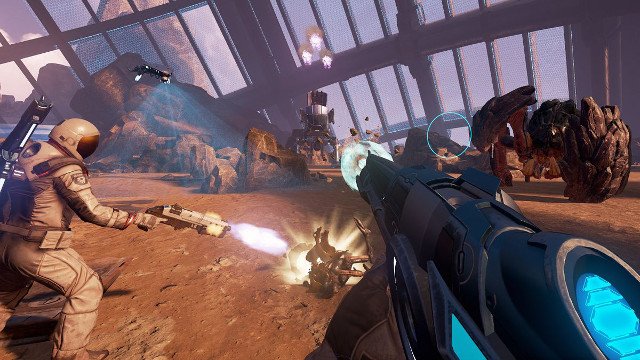If you’re running a gaming website, there are fewer decisions more futile than assigning someone to write about virtual reality. There was a time when we referred to it as the “VR bandwagon,” but as interest in the technology has seemingly peaked (at least for now), the actual reality is that readers really don’t care about our VR features, news, or reviews.
GameRevolution has a very healthy monthly readership, though it isn’t quite on the level of the likes of Kotaku or Giant Bomb, two of the industry’s leading sites. This means that certain coverage that simply wouldn’t make sense for us in terms of resources may work just fine for these outlets, though it seems that VR coverage struggles for viewership across the board.
In Patrick Klepek’s review of Moss for Waypoint, he touched upon the inherent problem with covering VR:
“It doesn’t help that writing about VR is the fastest way to guarantee almost nobody will click on a story you’ve worked on … This was true before VR headsets were released, when you could rationalize the response by how difficult it was [to] convey what it was like inside VR, but it’s stayed true. I can’t speak to how VR-centric websites perform, but from my time at Giant Bomb, Kotaku, and Waypoint, writing about VR has been a time tested way to guarantee you’re writing to an audience of one. Media outlets are a business, and the balance of focusing on what you find interesting and what an audience cares about is tricky.”
The initial flurry of excitement surrounding VR wasn’t replicated in the amount of traffic that its games garnered. As Patrick describes, the early belief was that this traffic would improve after more people got to grips with the technology, though this didn’t happen. Instead, traffic for articles centered around virtual reality has petered out, to the point where asking for coverage of a VR game is essentially asking a writer to shout into the void. If you assign a VR game review to them, they might as well write down the score on a piece of parchment that you will immediately proceed to set alight. No one benefits from it aside from the publisher.

Traffic isn’t everything, of course, but when you notice that articles centered around a particular platform aren’t stirring up any interest, it’s difficult to justify spending time and money catering to an audience that doesn’t really exist. From my vantage point, the argument that interest in the topic would increase if there was more coverage doesn’t hold much weight, with VR’s resurgence failing to generate any significant amount of hype around its games from the get-go.
For instance, Farpoint was arguably the most highly anticipated PSVR release, yet looking at the amount of Google searches in the month of its release reveals very few people actively searching for coverage. The below Google Trends graph shows that in May 2017, Farpoint (blue) received far fewer searches than other May releases such as Injustice 2 (red) and Prey (yellow), with Deck13’s The Surge (green) even doubling its searches. Get Even, a relatively undiscussed survival-horror game, roughly matched the number of Farpoint searches in the same time period, despite being delayed from May into June.

Considering that Farpoint was supposed to be the must-have, fully-fledged FPS experience that would sell more players on the PSVR, that so few people were actively searching for it is indicative of the problem with VR in general. Even the likes of Skyrim VR struggled to make any notable dent, with Nioh‘s PC release, Mario Party: The Top 100 and Need for Speed Payback each pulling in more Google searches during their November 2017 release month.
There are certain topics surrounding VR that tend to garner a reasonable amount of attention — hardware can pull in reasonable numbers, while the business of VR also proves to be popular every now and again. However, games are what keep people interested in buying VR headsets, and that so few actively search out information pertaining to new VR releases ensures that coverage of the technology isn’t as prolific as you might expect. Simply put, few seem to care about VR games.

If people aren’t talking about or searching for a game, then that’s a marketing issue. The vast majority of the focus on virtual reality so far has been on the hardware itself rather than the games, which is understandable when trying to appeal to those who haven’t yet bought a headset, but isn’t particularly useful when trying to maintain interest in VR over an extended period of time. I find it curious that we haven’t seen more VR ads centered around specific games — if you’ve yet to buy a headset, then the lack of games pushed as system-sellers is off-putting. Why would you buy a headset if there still doesn’t appear to be many great VR games for you to play?
Gaming sites aren’t the marketing arm for virtual reality, so the industry’s failure to generate a significant amount of interest around its VR games isn’t a result of a lack of coverage. This lack of coverage is instead a response to no one bothering to check out VR games, and the only way to reverse that is to somehow get players interested. Until then, don’t expect to see many VR game news stories or reviews popping up in your timeline anytime soon.
Featured Image Credit: Future Publishing / Getty Images











